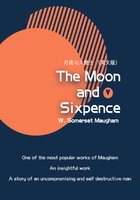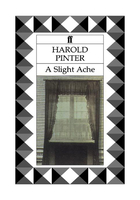As a general rule, old General Ivolgin's paroxysms ended in smoke. He had before this experienced fits of sudden fury, but not very often, because he was really a man of peaceful and kindly disposition. He had tried hundreds of times to overcome the dissolute habits which he had contracted of late years. He would suddenly remember that he was "a father," would be reconciled with his wife, and shed genuine tears. His feeling for Nina Alexandrovna amounted almost to adoration; she had pardoned so much in silence, and loved him still in spite of the state of degradation into which he had fallen. But the general's struggles with his own weakness never lasted very long. He was, in his way, an impetuous man, and a quiet life of repentance in the bosom of his family soon became insupportable to him. In the end he rebelled, and flew into rages which he regretted, perhaps, even as he gave way to them, but which were beyond his control. He picked quarrels with everyone, began to hold forth eloquently, exacted unlimited respect, and at last disappeared from the house, and sometimes did not return for a long time. He had given up interfering in the affairs of his family for two years now, and knew nothing about them but what he gathered from hearsay.
But on this occasion there was something more serious than usual. Everyone seemed to know something, but to be afraid to talk about it.
The general had turned up in the bosom of his family two or three days before, but not, as usual, with the olive branch of peace in his hand, not in the garb of penitence—in which he was usually clad on such occasions—but, on the contrary, in an uncommonly bad temper. He had arrived in a quarrelsome mood, pitching into everyone he came across, and talking about all sorts and kinds of subjects in the most unexpected manner, so that it was impossible to discover what it was that was really putting him out. At moments he would be apparently quite bright and happy; but as a rule he would sit moody and thoughtful. He would abruptly commence to hold forth about the Epanchins, about Lebedeff, or the prince, and equally abruptly would stop short and refuse to speak another word, answering all further questions with a stupid smile, unconscious that he was smiling, or that he had been asked a question. The whole of the previous night he had spent tossing about and groaning, and poor Nina Alexandrovna had been busy making cold compresses and warm fomentations and so on, without being very clear how to apply them. He had fallen asleep after a while, but not for long, and had awaked in a state of violent hypochondria which had ended in his quarrel with Hippolyte, and the solemn cursing of Ptitsin's establishment generally. It was also observed during those two or three days that he was in a state of morbid self-esteem, and was specially touchy on all points of honour. Colia insisted, in discussing the matter with his mother, that all this was but the outcome of abstinence from drink, or perhaps of pining after Lebedeff, with whom up to this time the general had been upon terms of the greatest friendship; but with whom, for some reason or other, he had quarrelled a few days since, parting from him in great wrath. There had also been a scene with the prince. Colia had asked an explanation of the latter, but had been forced to conclude that he was not told the whole truth.
If Hippolyte and Nina Alexandrovna had, as Gania suspected, had some special conversation about the general's actions, it was strange that the malicious youth, whom Gania had called a scandal-monger to his face, had not allowed himself a similar satisfaction with Colia.
The fact is that probably Hippolyte was not quite so black as Gania painted him; and it was hardly likely that he had informed Nina Alexandrovna of certain events, of which we know, for the mere pleasure of giving her pain. We must never forget that human motives are generally far more complicated than we are apt to suppose, and that we can very rarely accurately describe the motives of another. It is much better for the writer, as a rule, to content himself with the bare statement of events; and we shall take this line with regard to the catastrophe recorded above, and shall state the remaining events connected with the general's trouble shortly, because we feel that we have already given to this secondary character in our story more attention than we originally intended.
The course of events had marched in the following order. When Lebedeff returned, in company with the general, after their expedition to town a few days since, for the purpose of investigation, he brought the prince no information whatever. If the latter had not himself been occupied with other thoughts and impressions at the time, he must have observed that Lebedeff not only was very uncommunicative, but even appeared anxious to avoid him.
When the prince did give the matter a little attention, he recalled the fact that during these days he had always found Lebedeff to be in radiantly good spirits, when they happened to meet; and further, that the general and Lebedeff were always together. The two friends did not seem ever to be parted for a moment.
Occasionally the prince heard loud talking and laughing upstairs, and once he detected the sound of a jolly soldier's song going on above, and recognized the unmistakable bass of the general's voice. But the sudden outbreak of song did not last; and for an hour afterwards the animated sound of apparently drunken conversation continued to be heard from above. At length there was the clearest evidence of a grand mutual embracing, and someone burst into tears. Shortly after this, however, there was a violent but short-lived quarrel, with loud talking on both sides.
All these days Colia had been in a state of great mental preoccupation. Muishkin was usually out all day, and only came home late at night. On his return he was invariably informed that Colia had been looking for him. However, when they did meet, Colia never had anything particular to tell him, excepting that he was highly dissatisfied with the general and his present condition of mind and behaviour.
"They drag each other about the place," he said, "and get drunk together at the pub close by here, and quarrel in the street on the way home, and embrace one another after it, and don't seem to part for a moment."
When the prince pointed out that there was nothing new about that, for that they had always behaved in this manner together, Colia did not know what to say; in fact he could not explain what it was that specially worried him, just now, about his father.
On the morning following the bacchanalian songs and quarrels recorded above, as the prince stepped out of the house at about eleven o'clock, the general suddenly appeared before him, much agitated.
"I have long sought the honour and opportunity of meeting you—much-esteemed Lef Nicolaievitch," he murmured, pressing the prince's hand very hard, almost painfully so; "long—very long."
The prince begged him to step in and sit down.
"No—I will not sit down,—I am keeping you, I see,—another time!—I think I may be permitted to congratulate you upon the realization of your heart's best wishes, is it not so?"
"What best wishes?"
The prince blushed. He thought, as so many in his position do, that nobody had seen, heard, noticed, or understood anything.
"Oh—be easy, sir, be easy! I shall not wound your tenderest feelings. I've been through it all myself, and I know well how unpleasant it is when an outsider sticks his nose in where he is not wanted. I experience this every morning. I came to speak to you about another matter, though, an important matter. A very important matter, prince."
The latter requested him to take a seat once more, and sat down himself.
"Well—just for one second, then. The fact is, I came for advice. Of course I live now without any very practical objects in life; but, being full of self-respect, in which quality the ordinary Russian is so deficient as a rule, and of activity, I am desirous, in a word, prince, of placing myself and my wife and children in a position of—in fact, I want advice."
The prince commended his aspirations with warmth.
"Quite so—quite so! But this is all mere nonsense. I came here to speak of something quite different, something very important, prince. And I have determined to come to you as to a man in whose sincerity and nobility of feeling I can trust like—like—are you surprised at my words, prince?"
The prince was watching his guest, if not with much surprise, at all events with great attention and curiosity.
The old man was very pale; every now and then his lips trembled, and his hands seemed unable to rest quietly, but continually moved from place to place. He had twice already jumped up from his chair and sat down again without being in the least aware of it. He would take up a hook from the table and open it—talking all the while,—look at the heading of a chapter, shut it and put it back again, seizing another immediately, but holding it unopened in his hand, and waving it in the air as he spoke.
"But enough!" he cried, suddenly. "I see I have been boring you with my—"
"Not in the least—not in the least, I assure you. On the contrary, I am listening most attentively, and am anxious to guess-"
"Prince, I wish to place myself in a respectable position—I wish to esteem myself—and to—"
"My dear sir, a man of such noble aspirations is worthy of all esteem by virtue of those aspirations alone."
The prince brought out his "copy-book sentence" in the firm belief that it would produce a good effect. He felt instinctively that some such well-sounding humbug, brought out at the proper moment, would soothe the old man's feelings, and would be specially acceptable to such a man in such a position. At all hazards, his guest must be despatched with heart relieved and spirit comforted; that was the problem before the prince at this moment.
The phrase flattered the general, touched him, and pleased him mightily. He immediately changed his tone, and started off on a long and solemn explanation. But listen as he would, the prince could make neither head nor tail of it.
The general spoke hotly and quickly for ten minutes; he spoke as though his words could not keep pace with his crowding thoughts. Tears stood in his eyes, and yet his speech was nothing but a collection of disconnected sentences, without beginning and without end—a string of unexpected words and unexpected sentiments—colliding with one another, and jumping over one another, as they burst from his lips.
"Enough!" he concluded at last, "you understand me, and that is the great thing. A heart like yours cannot help understanding the sufferings of another. Prince, you are the ideal of generosity; what are other men beside yourself? But you are young—accept my blessing! My principal object is to beg you to fix an hour for a most important conversation—that is my great hope, prince. My heart needs but a little friendship and sympathy, and yet I cannot always find means to satisfy it."
"But why not now? I am ready to listen, and—"
"No, no—prince, not now! Now is a dream! And it is too, too important! It is to be the hour of Fate to me—MY OWN hour. Our interview is not to be broken in upon by every chance comer, every impertinent guest—and there are plenty of such stupid, impertinent fellows"—(he bent over and whispered mysteriously, with a funny, frightened look on his face)—"who are unworthy to tie your shoe, prince. I don't say MINE, mind—you will understand me, prince. Only YOU understand me, prince—no one else. HE doesn't understand me, he is absolutely—ABSOLUTELY unable to sympathize. The first qualification for understanding another is Heart."
The prince was rather alarmed at all this, and was obliged to end by appointing the same hour of the following day for the interview desired. The general left him much comforted and far less agitated than when he had arrived.
At seven in the evening, the prince sent to request Lebedeff to pay him a visit. Lebedeff came at once, and "esteemed it an honour," as he observed, the instant he entered the room. He acted as though there had never been the slightest suspicion of the fact that he had systematically avoided the prince for the last three days.
He sat down on the edge of his chair, smiling and making faces, and rubbing his hands, and looking as though he were in delighted expectation of hearing some important communication, which had been long guessed by all.
The prince was instantly covered with confusion; for it appeared to be plain that everyone expected something of him—that everyone looked at him as though anxious to congratulate him, and greeted him with hints, and smiles, and knowing looks.
Keller, for instance, had run into the house three times of late, "just for a moment," and each time with the air of desiring to offer his congratulations. Colia, too, in spite of his melancholy, had once or twice begun sentences in much the same strain of suggestion or insinuation.
The prince, however, immediately began, with some show of annoyance, to question Lebedeff categorically, as to the general's present condition, and his opinion thereon. He described the morning's interview in a few words.
"Everyone has his worries, prince, especially in these strange and troublous times of ours," Lebedeff replied, drily, and with the air of a man disappointed of his reasonable expectations.
"Dear me, what a philosopher you are!" laughed the prince.
"Philosophy is necessary, sir—very necessary—in our day. It is too much neglected. As for me, much esteemed prince, I am sensible of having experienced the honour of your confidence in a certain matter up to a certain point, but never beyond that point. I do not for a moment complain—"
"Lebedeff, you seem to be angry for some reason!" said the prince.
"Not the least bit in the world, esteemed and revered prince! Not the least bit in the world!" cried Lebedeff, solemnly, with his hand upon his heart. "On the contrary, I am too painfully aware that neither by my position in the world, nor by my gifts of intellect and heart, nor by my riches, nor by any former conduct of mine, have I in any way deserved your confidence, which is far above my highest aspirations and hopes. Oh no, prince; I may serve you, but only as your humble slave! I am not angry, oh no! Not angry; pained perhaps, but nothing more.
"My dear Lebedeff, I—"
"Oh, nothing more, nothing more! I was saying to myself but now… 'I am quite unworthy of friendly relations with him,' say I; 'but perhaps as landlord of this house I may, at some future date, in his good time, receive information as to certain imminent and much to be desired changes—'"
So saying Lebedeff fixed the prince with his sharp little eyes, still in hope that he would get his curiosity satisfied.
The prince looked back at him in amazement.
"I don't understand what you are driving at!" he cried, almost angrily, "and, and—what an intriguer you are, Lebedeff!" he added, bursting into a fit of genuine laughter.
Lebedeff followed suit at once, and it was clear from his radiant face that he considered his prospects of satisfaction immensely improved.
"And do you know," the prince continued, "I am amazed at your naive ways, Lebedeff! Don't be angry with me—not only yours, everybody else's also! You are waiting to hear something from me at this very moment with such simplicity that I declare I feel quite ashamed of myself for having nothing whatever to tell you. I swear to you solemnly, that there is nothing to tell. There! Can you take that in?" The prince laughed again.
Lebedeff assumed an air of dignity. It was true enough that he was sometimes naive to a degree in his curiosity; but he was also an excessively cunning gentleman, and the prince was almost converting him into an enemy by his repeated rebuffs. The prince did not snub Lebedeff's curiosity, however, because he felt any contempt for him; but simply because the subject was too delicate to talk about. Only a few days before he had looked upon his own dreams almost as crimes. But Lebedeff considered the refusal as caused by personal dislike to himself, and was hurt accordingly. Indeed, there was at this moment a piece of news, most interesting to the prince, which Lebedeff knew and even had wished to tell him, but which he now kept obstinately to himself.
"And what can I do for you, esteemed prince? Since I am told you sent for me just now," he said, after a few moments' silence.
"Oh, it was about the general," began the prince, waking abruptly from the fit of musing which he too had indulged in "and-and about the theft you told me of."
"That is—er—about—what theft?"
"Oh come! just as if you didn't understand, Lukian Timofeyovitch! What are you up to? I can't make you out! The money, the money, sir! The four hundred roubles that you lost that day. You came and told me about it one morning, and then went off to Petersburg. There, NOW do you understand?"
"Oh—h—h! You mean the four hundred roubles!" said Lebedeff, dragging the words out, just as though it had only just dawned upon him what the prince was talking about. "Thanks very much, prince, for your kind interest—you do me too much honour. I found the money, long ago!"
"You found it? Thank God for that!"
"Your exclamation proves the generous sympathy of your nature, prince; for four hundred roubles—to a struggling family man like myself—is no small matter!"
"I didn't mean that; at least, of course, I'm glad for your sake, too," added the prince, correcting himself, "but—how did you find it?"
"Very simply indeed! I found it under the chair upon which my coat had hung; so that it is clear the purse simply fell out of the pocket and on to the floor!"
"Under the chair? Impossible! Why, you told me yourself that you had searched every corner of the room? How could you not have looked in the most likely place of all?"
"Of course I looked there,—of course I did! Very much so! I looked and scrambled about, and felt for it, and wouldn't believe it was not there, and looked again and again. It is always so in such cases. One longs and expects to find a lost article; one sees it is not there, and the place is as bare as one's palm; and yet one returns and looks again and again, fifteen or twenty times, likely enough!"
"Oh, quite so, of course. But how was it in your case?—I don't quite understand," said the bewildered prince. "You say it wasn't there at first, and that you searched the place thoroughly, and yet it turned up on that very spot!"
"Yes, sir—on that very spot." The prince gazed strangely at Lebedeff. "And the general?" he asked, abruptly.
"The—the general? How do you mean, the general?" said Lebedeff, dubiously, as though he had not taken in the drift of the prince's remark.
"Oh, good heavens! I mean, what did the general say when the purse turned up under the chair? You and he had searched for it together there, hadn't you?"
"Quite so—together! But the second time I thought better to say nothing about finding it. I found it alone."
"But—why in the world—and the money? Was it all there?"
"I opened the purse and counted it myself; right to a single rouble."
"I think you might have come and told me," said the prince, thoughtfully.
"Oh—I didn't like to disturb you, prince, in the midst of your private and doubtless most interesting personal reflections. Besides, I wanted to appear, myself, to have found nothing. I took the purse, and opened it, and counted the money, and shut it and put it down again under the chair."
"What in the world for?"
"Oh, just out of curiosity," said Lebedeff, rubbing his hands and sniggering.
"What, it's still there then, is it? Ever since the day before yesterday?"
"Oh no! You see, I was half in hopes the general might find it. Because if I found it, why should not he too observe an object lying before his very eyes? I moved the chair several times so as to expose the purse to view, but the general never saw it. He is very absent just now, evidently. He talks and laughs and tells stories, and suddenly flies into a rage with me, goodness knows why."
"Well, but—have you taken the purse away now?"
"No, it disappeared from under the chair in the night."
"Where is it now, then?"
"Here," laughed Lebedeff, at last, rising to his full height and looking pleasantly at the prince, "here, in the lining of my coat. Look, you can feel it for yourself, if you like!"
Sure enough there was something sticking out of the front of the coat—something large. It certainly felt as though it might well be the purse fallen through a hole in the pocket into the lining.
"I took it out and had a look at it; it's all right. I've let it slip back into the lining now, as you see, and so I have been walking about ever since yesterday morning; it knocks against my legs when I walk along."
"H'm! and you take no notice of it?"
"Quite so, I take no notice of it. Ha, ha! and think of this, prince, my pockets are always strong and whole, and yet, here in one night, is a huge hole. I know the phenomenon is unworthy of your notice; but such is the case. I examined the hole, and I declare it actually looks as though it had been made with a pen-knife, a most improbable contingency."
"And—and—the general?"
"Ah, very angry all day, sir; all yesterday and all today. He shows decided bacchanalian predilections at one time, and at another is tearful and sensitive, but at any moment he is liable to paroxysms of such rage that I assure you, prince, I am quite alarmed. I am not a military man, you know. Yesterday we were sitting together in the tavern, and the lining of my coat was—quite accidentally, of course—sticking out right in front. The general squinted at it, and flew into a rage. He never looks me quite in the face now, unless he is very drunk or maudlin; but yesterday he looked at me in such a way that a shiver went all down my back. I intend to find the purse tomorrow; but till then I am going to have another night of it with him."
"What's the good of tormenting him like this?" cried the prince.
"I don't torment him, prince, I don't indeed!" cried Lebedeff, hotly. "I love him, my dear sir, I esteem him; and believe it or not, I love him all the better for this business, yes—and value him more."
Lebedeff said this so seriously that the prince quite lost his temper with him.
"Nonsense! love him and torment him so! Why, by the very fact that he put the purse prominently before you, first under the chair and then in your lining, he shows that he does not wish to deceive you, but is anxious to beg your forgiveness in this artless way. Do you hear? He is asking your pardon. He confides in the delicacy of your feelings, and in your friendship for him. And you can allow yourself to humiliate so thoroughly honest a man!"
"Thoroughly honest, quite so, prince, thoroughly honest!" said Lebedeff, with flashing eyes. "And only you, prince, could have found so very appropriate an expression. I honour you for it, prince. Very well, that's settled; I shall find the purse now and not tomorrow. Here, I find it and take it out before your eyes! And the money is all right. Take it, prince, and keep it till tomorrow, will you? Tomorrow or next day I'll take it back again. I think, prince, that the night after its disappearance it was buried under a bush in the garden. So I believe—what do you think of that?"
"Well, take care you don't tell him to his face that you have found the purse. Simply let him see that it is no longer in the lining of your coat, and form his own conclusions."
"Do you think so? Had I not just better tell him I have found it, and pretend I never guessed where it was?"
"No, I don't think so," said the prince, thoughtfully; "it's too late for that—that would be dangerous now. No, no! Better say nothing about it. Be nice with him, you know, but don't show him—oh, YOU know well enough—"
"I know, prince, of course I know, but I'm afraid I shall not carry it out; for to do so one needs a heart like your own. He is so very irritable just now, and so proud. At one moment he will embrace me, and the next he flies out at me and sneers at me, and then I stick the lining forward on purpose. Well, au revoir, prince, I see I am keeping you, and boring you, too, interfering with your most interesting private reflections."
"Now, do be careful! Secrecy, as before!"
"Oh, silence isn't the word! Softly, softly!"
But in spite of this conclusion to the episode, the prince remained as puzzled as ever, if not more so. He awaited next morning's interview with the general most impatiently.














